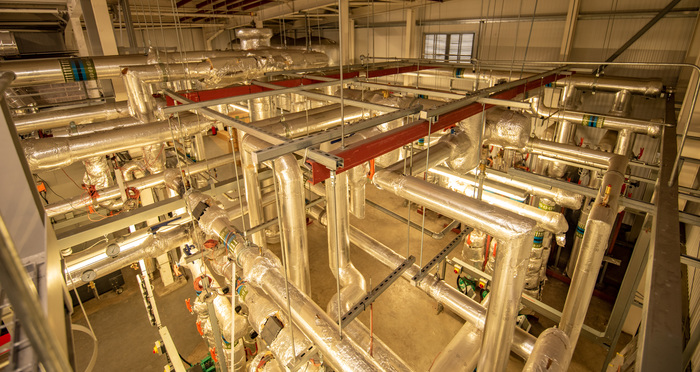Heat Networks Bill set for Stage 3 debate
Proposed legislation to encourage greater deployment of heat networks in Scotland in order to help reduce emissions from heating homes and buildings will be debated at Stage 3 in the Scottish Parliament today.

The Heat Networks (Scotland) Bill will introduce regulation and a licensing system for district and communal heating to accelerate use of the networks.
Introduced by the cabinet secretary for transport, infrastructure and connectivity, Michael Matheson MSP, in March 2020, the Bill aims to reduce fossil fuel heating systems and help achieve Scotland’s climate change targets.
District or communal networks deliver heat from a central source through insulated pipes to local homes and other buildings, and have the potential to reduce or remove emissions from heating buildings and homes right across Scotland.
Heat networks are generally more efficient than individual gas boilers and can also be run wholly from renewable sources, reducing the need for customers to procure and maintain their own boilers.
Ahead of the debate, Scottish Labour has asked for assurances that communities are prioritised in the development of the networks adding that the Bill must play a significant part in creating opportunities for Scottish manufacturing, local supply chains and green jobs as part of the green economic recovery.
Economy, jobs and fair work spokesperson Alex Rowley said: “This Bill must include commitment to support Scottish manufacturing industries. We have seen the recent hammer-blow to green jobs in places like BiFab as a direct result of the government’s failure to enhance investment in renewables and protect jobs.
“If successfully developed, heat networks have the potential to play a significant role in green recovery and a just transition. We cannot continue to allow green job opportunities to pass us by if we are to reach our net zero targets.”
Scottish Labour environment, climate change and land reform spokesperson Claudia Beamish added: “We need to embed the just transition principles into the Bill in a meaningful way, and every step on the journey to a net zero emissions economy should be tested against these principles of equity.
“The rollout of heat networks are no exception. The shortcomings of capturing fair work in the renewables industries have been clear to see, so the green jobs must be developed fairly, and consumers and their local communities must be able to share in the multi-benefits.”
Scottish Labour has also called for recognition of fuel poverty within the Bill to ensure it acts as a means to help to eradicate the problem and for appropriate freedom and support for local authorities to establish heat networks shaped by local priorities.







